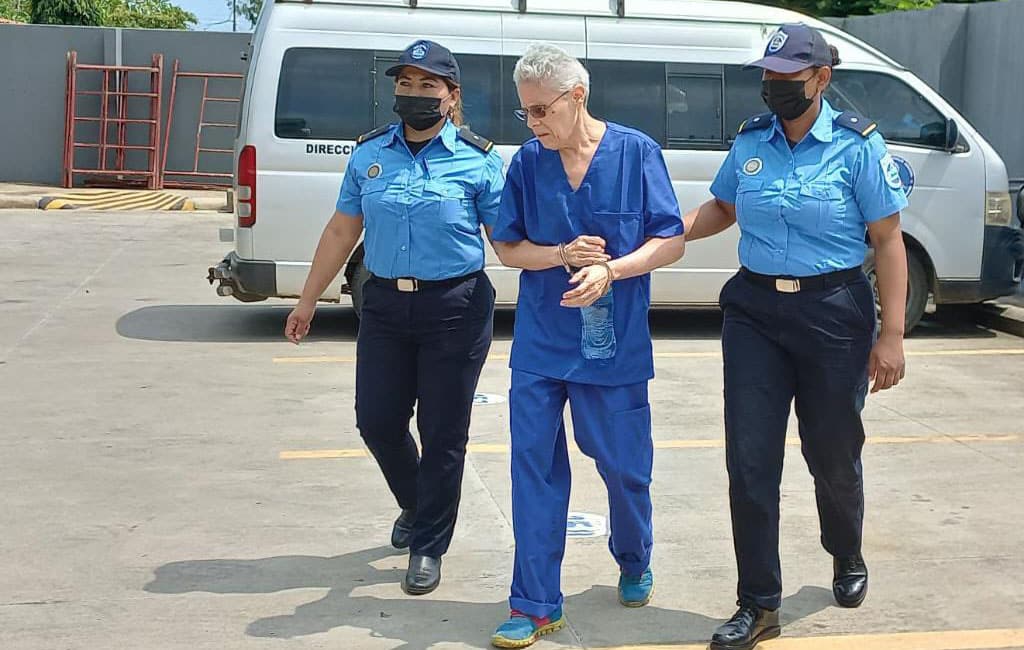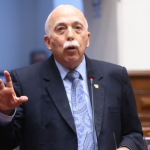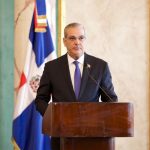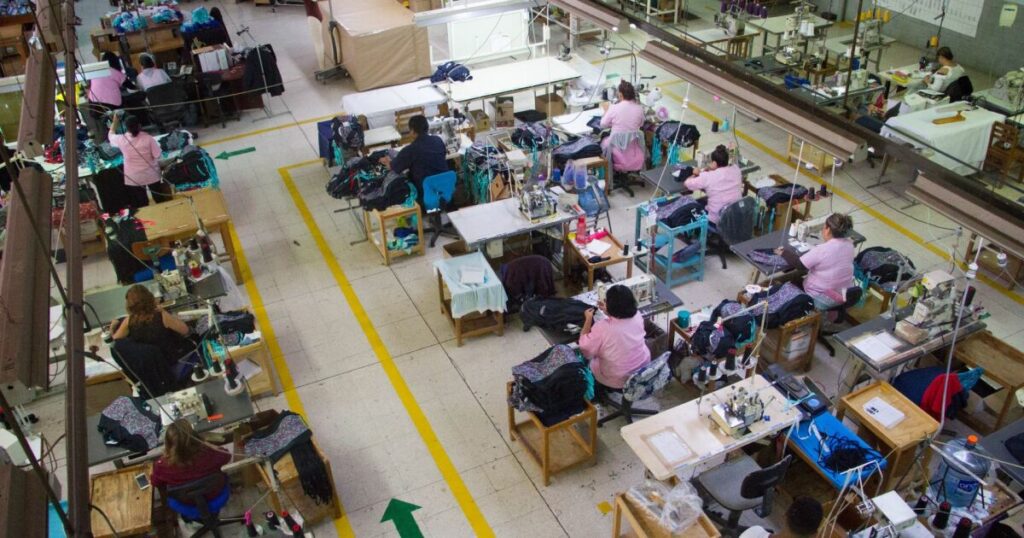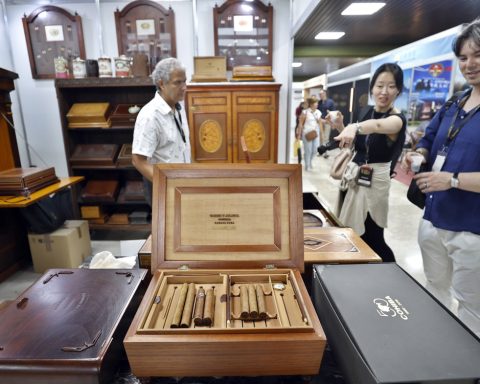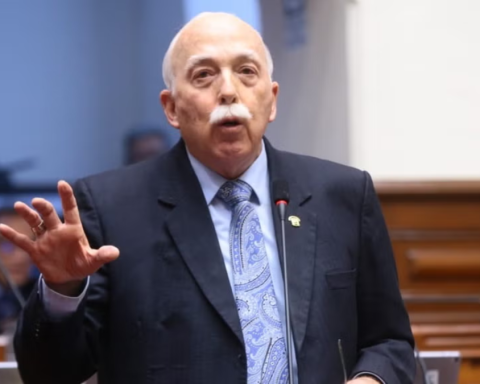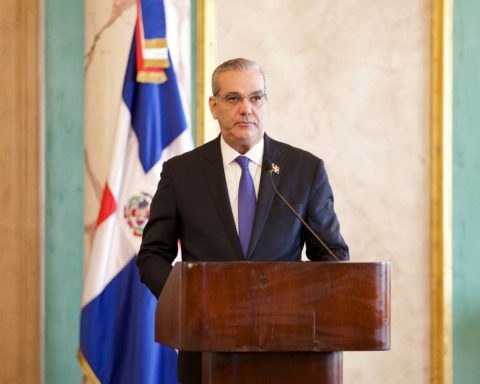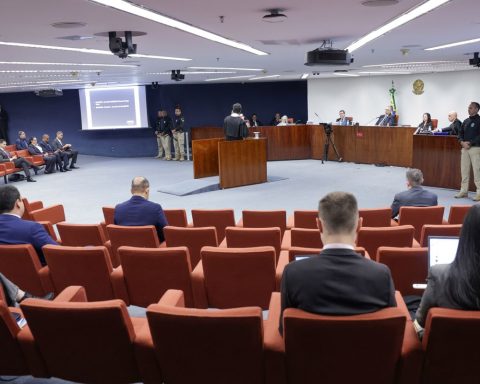The political prisoner, historian and ex-guerrilla, Dora María Téllez, started a hunger strike to demand an end to the solitary confinement and torture to which she has been subjected for more than 15 months in the Judicial Assistance Directorate (DAJ), known as The Chipote; have access to reading material and that they allow them to sign a power of attorney for their relatives to withdraw their retirement pension, assured sources linked to human rights organizations.
Going on a hunger strike poses a risk to her health, whose deterioration was evidenced on August 31, when she was presented to media related to the Ortega regime. in some invented “informative hearings” in the courts of Managua.
The Mesoamerican Initiative of Women Human Rights Defenders (IM-Defenders)He warned that before Téllez began the hunger strike, he had already lost more than 15% of his body mass. “Maintaining a hunger strike, even if it is partial, can lead to an even more serious decline in his health, putting his life at risk,” the organization stressed.
The NGO expresses that go on a hunger strike “It is a desperate action” to which the political prisoners resort due to “the absolute refusal on the part of the authorities to listen to their legitimate demands and guarantee their human rights, which are inalienable and remain in force in the state of deprivation of liberty.”
The former guerrilla, who has been subjected to constant interrogations in prison, looked pale, aged and extremely thin. On September 17, the Nicaraguan Center for Human Rights (Cenidh) He warned that Téllez’s life “is in danger” due to his advanced age —66 years— and the serious physical deterioration he has experienced during more than a year in prison.
“Since the last time we saw her in the derision that the Ortega-Murillo regime called ‘informative hearings’ 17 days have passed and we don’t know anything about her”, warned the Cenidh. “On that occasion we were able to verify her physical deterioration, the mark of her torture on her visibly pale, weak and thin body. How can a person in that state and at that age continue to resist?” the organization questioned.
The former guerrilla Téllez was sentenced to eight years in prison for allegedly “conspiring to undermine national integrity to the detriment of the State of Nicaragua and Nicaraguan society.”
Another political prisoner on hunger strike
This Wednesday, September 21, the sports writer and political prisoner, Miguel Mendoza, also started a hunger strike so that the Ortega regime allows the visit of his nine-year-old daughter, whom he has not seen since the night of June 21, 2021, prior to his arrest in the El Chipote prison, where he has been kept since then.
Previously, the political prisoner Támara Dávila and the prisoner of conscience, Miguel Mora, also declared a hunger strike demanding that the Ortega regime allow the visit of their six-year-old girl and the 21-year-old boy, respectively, whom they had not seen for more than a year. The meeting took place on Saturday August 20 at El Chipote.
The relatives of the political prisoner Suyen Barahona, president of the Renovating Democratic Union (Unamos), started a campaign on social networks, called “A call for Suyen.” demanding that Daniel Ortega’s regime allow communication with his five-year-old son, whom he has not heard or seen since his capture on June 13, 2021, more than 15 months ago.
State is responsible for political prisoners
IM-Defensoras sympathizes with and supports the “legitimate demands of Dora María Téllez”, expressing its concern about her state of health and its evolution. They hold the Nicaraguan State responsible for “any affectation on the integrity and life” of Téllez, they stressed in an alert published on her website.
At the same time, they demanded the freedom of the former guerrilla and while this is not granted, that they send her to “home for jail”, as was done with other elderly prisoners of conscience and in health conditions similar to those of the former guerrilla. .
Until now, the regime of Daniel Ortega hides 13 prisoners of conscience who remain isolated, with permanent police surveillance inside and outside their homes under “house by jail”, while those who are in El Chipote have shown them only once in 15 months in prison.
According to the Mechanism for the recognition of political prisoners in Nicaragua, there are 205 prisoners of conscience in the different prisons of the country.
